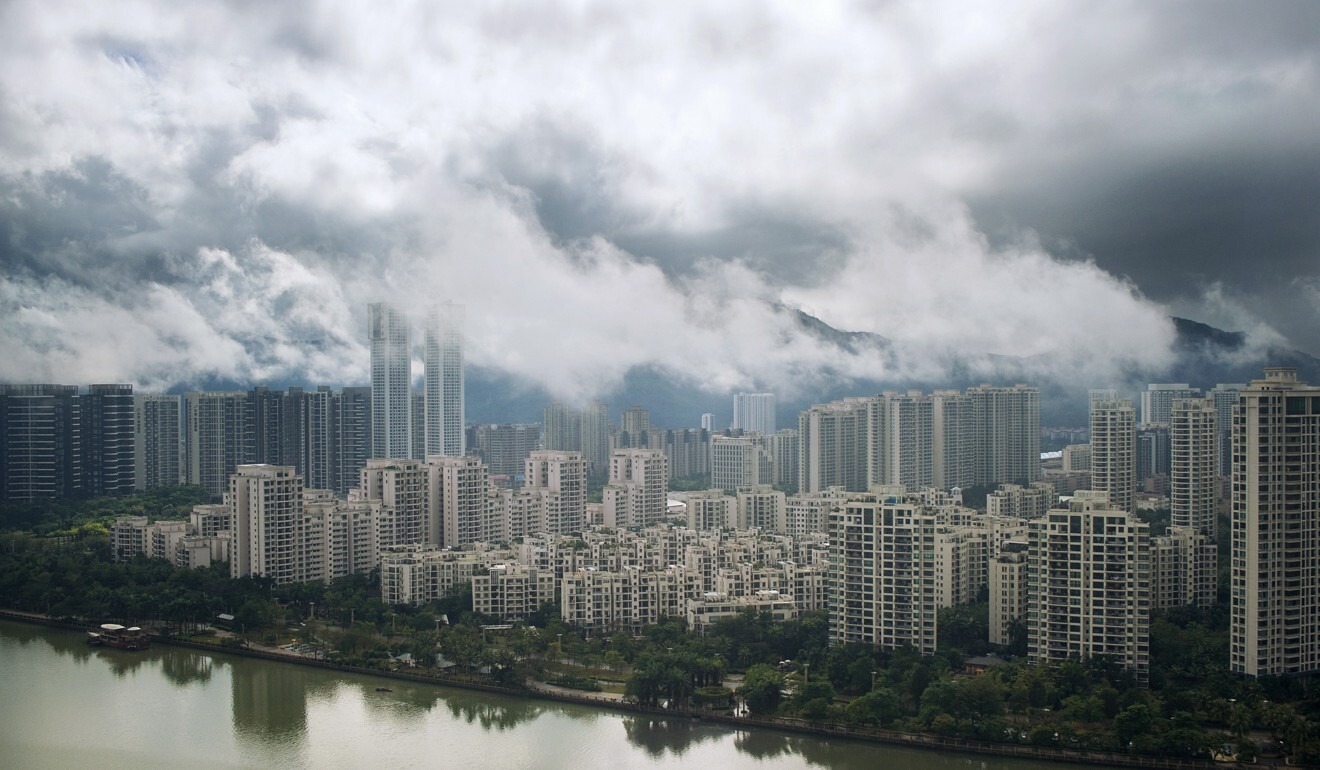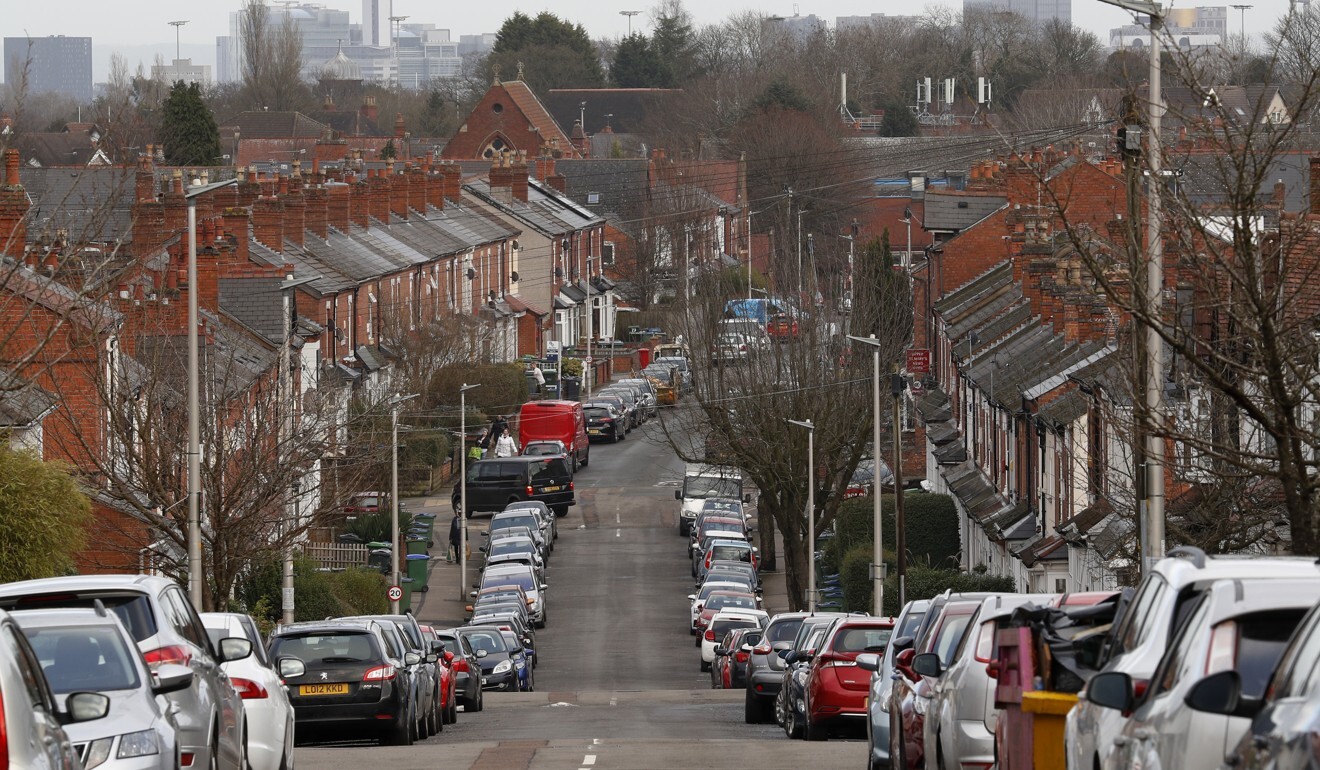
Flurry of complaints against Hong Kong agents selling overseas homes sparks licensing call; misleading adverts, withholding cash among grievances
- Consumer Council says need for regulation more pressing than ever with thirst for buying property outside the city growing among its residents
- Number of complaints relating to the sale in Hong Kong of overseas and mainland Chinese properties climbed 60 per cent last year, new figures reveal
The Consumer Council on Thursday said agents handling the sale of new residential properties abroad and in mainland China should be licensed, bringing them into line with existing requirements for those dealing with local transactions.
In a 163-page report on enhancing consumer protection, the watchdog also called for the protective net to be extended to cover the advertising in Hong Kong of first-hand homes being sold outside the city.

Consumer Council chairman Paul Lam Ting-kwok said wide-ranging efforts were necessary to tighten the regulatory regime.
“We strongly recommend that all estate agents carrying out such activities should be licensed,” he said.
Lam added that it was also time to update the rules to require agents to take more responsibility for conducting due diligence when handling a property, rather than forcing consumers to obtain accurate market information on their own.
The number of complaints relating to the sale of overseas and mainland properties jumped to 56 last year from 35 in 2017, a 60 per cent rise, according to new figures from the council.
Twenty-four complaints were logged in the first eight months of this year. From 2017 to August last year as a whole, the watchdog received 261 complaints.
The grievances ranged from misleading or inaccurate information to the omission of key documentation and other materials, as well as difficulties in obtaining refunds for reservation fees or deposits.
Hong Kong house prices fall by the most in nearly a year as buyers retreat
About three-quarters of the complainants learned of the investment opportunities through adverts in local newspapers. Nearly 70 per cent of those who aired concerns had attended sales exhibitions or seminars organised by agents.
Those who exclusively deal with properties outside the city are not currently required to obtain an agent or salesperson’s licence from the Estate Agents Authority, placing them beyond the regulator’s reach in the event of any misconduct.
The council pointed out that some other jurisdictions required estate agents dealing with overseas properties to be licensed, namely Malaysia, Singapore, Taiwan and British Columbia in Canada.
A Consumer Council study into 20 traders selling or promoting a total of 36 properties outside Hong Kong – in Australia, Canada, mainland China, Malaysia, Japan, Singapore, Thailand and Britain – found only three had complied with rules requiring them to declare they were unlicensed.
It also noted a general lack of disclosure of an agent’s relationship with the property vendor and liability disclaimers for purchases. Of the 19 agents and one property developer, 15 were unlicensed, the investigation found.

Council chief executive Gilly Wong Fung-han, said some agents were unable to give the consumer even the basic details of the properties they handled, such as their location, their nearby surroundings and the regulations concerning foreign buyers in the market.
“In our investigation, we found that the agent could not read the Japanese flier and just guessed at the meaning of its printed materials,” Wong said.
The council said the need to close the regulatory loophole had become more urgent amid growing interest among Hongkongers in homes outside the city for the purposes of investment, accommodation for children studying overseas or even migration.
Hong Kong currently has no centralised database on the purchases of overseas properties taking place in the city.
A Hongkonger named Lesley, who moved to Britain three years ago and now works for a property portal, said she felt the lack of regulations on local agents had led to exaggerated advertisements that had misled friends back home.
“I noticed some agents will say properties are selling very fast. Like on the first day of selling, they’ll claim just a few houses are still available,” she said.
Hong Kong’s real estate mania inflates the costs of even the tiniest flats
The council’s Wong said authorities needed to protect consumers by tightening the rules and closing the loophole, rather than merely educating the public.
“It’s a matter of legislative priority,” Wong said. “Nobody projected that the market for properties outside Hong Kong would bloom so quickly.”
The government, which said in 2018 that it would be difficult to regulate the dealers, has not clearly indicated what steps it intends to take, citing instead a number of challenges posed by the proposed legislation.
The council’s report quoted the Transport and Housing Bureau and the Estate Agents Authority as saying any attempt to restrict the sale of properties outside Hong Kong through licensing would violate the principle of free trade.
The bureau maintained that regulating estate agents handling overseas properties would not minimise the risks buyers faced because they might still lack protection in other jurisdictions.
Hongkongers relocating to the UK are abandoning inner London homes
Another issue identified in the report was the tactic of claiming in promotional materials that buyers would enjoy guaranteed returns on investments, which is forbidden under the Securities and Futures Ordinance if the dealer does not have the relevant licence.
The Securities and Futures Commission told the council it supported the proposal to require agents selling overseas properties to be licensed.
Two of the city’s largest property agencies told the council they believed more stringent rules on advertising and the disclosure of information to consumers should be put in place.
Centaline Property Agency said it supported the proposed licensing arrangements, abided by the requirements of the Estate Agents Authority and also obtained the requisite due diligence reports from the property vendor.
Midland Global, although unlicensed, said it had its own set of internal rules that it believed were even more stringent than those of the Estate Agents Authority.
Additional reporting by Jack Tsang


